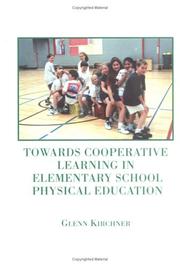| Listing 1 - 4 of 4 |
Sort by
|

ISBN: 0520927311 1597346802 9780520927315 0585419752 9780585419756 0520219759 9780520219755 0520229576 9780520229570 9781597346801 Year: 2002 Publisher: Berkeley University of California Press
Abstract | Keywords | Export | Availability | Bookmark
 Loading...
Loading...Choose an application
- Reference Manager
- EndNote
- RefWorks (Direct export to RefWorks)
One of the most fundamental human urges is to form a pair. Despite many tendencies that threaten traditional marriage and even make committed cohabitation problematic, very few people live through adulthood without at least one lengthy relationship, and up to ninety percent of Americans marry at least once in their lives.
Couples-- United States. --- Interpersonal relations - United States. --- Couples --- Interpersonal relations

ISBN: 0398080011 9780398080013 0398075999 9780398075996 0398076006 9780398076009 Year: 2005 Publisher: Springfield Charles C Thomas Publisher, LTD
Abstract | Keywords | Export | Availability | Bookmark
 Loading...
Loading...Choose an application
- Reference Manager
- EndNote
- RefWorks (Direct export to RefWorks)
The extensive amount of research evidence, at all levels of education and with all subject areas, consistently indicates that cooperative learning results in higher achievement, increased positive interpersonal relationships, and higher self-esteem than competitive or individualistic efforts. In physical education, individualistic learning is an important and effective way of acquiring motor skills. However, competition is more effective when children have learned to work together, to understand and appreciate each other's strengths and weaknesses, and to develop and use collaborative skills s

ISBN: 128243781X 9786612437816 0472024175 9780472024179 0472069152 0472099159 9780472069156 9780472099153 0472099159 9780472099153 0472069152 9780472069156 Year: 2006 Publisher: Ann Arbor
Abstract | Keywords | Export | Availability | Bookmark
 Loading...
Loading...Choose an application
- Reference Manager
- EndNote
- RefWorks (Direct export to RefWorks)
Contentment. --- Humanistic ethics. --- Interpersonal relations -- United States. --- Materialism --- Quality of life --- Humanist ethics --- Ethics --- Humanism --- Gladness --- Satisfaction --- Happiness --- Peace of mind --- Sociology & Social History --- Social Sciences --- Social Conditions --- Interpersonal relations
Book
ISBN: 9780190673611 0190673613 0190673621 Year: 2017 Publisher: New York Oxford University Press
Abstract | Keywords | Export | Availability | Bookmark
 Loading...
Loading...Choose an application
- Reference Manager
- EndNote
- RefWorks (Direct export to RefWorks)
Sex is cheap. Coupled sexual activity has become more widely available than ever. Cheap sex has been made possible by two technologies that have little to do with each other -- the Pill and high-quality pornography -- and its distribution made more efficient by a third technological innovation, online dating. Together, they drive down the cost of real sex, and in turn slow the development of love, make fidelity more challenging, sexual malleability more common, and have even taken a toll on men's marriageability. Cheap Sex takes readers on an extended tour inside the American mating market, and highlights key patterns that characterize young adults' experience today, including the timing of first sex in relationships, overlapping partners, frustrating returns on their relational investments, and a failure to link future goals like marriage with how they navigate their current relationships. Drawing upon several large nationally-representative surveys, in-person interviews with 100 men and women, and the assertions of scholars ranging from evolutionary psychologists to gender theorists, what emerges is a story about social change, technological breakthroughs, and unintended consequences. Men and women have not fundamentally changed, but their unions have. No longer playing a supporting role in relationships, sex has emerged as a central priority in relationship development and continuation. But unravel the layers, and it is obvious that the emergence of "industrial sex" is far more a reflection of men's interests than women's. - Publisher.
Marriage --- Man-woman relationships --- Monogamous relationships --- Sex --- Interpersonal relations --- 392.6 <73> --- 392.6 <73> Seksualiteit. Seksueel leven. Concubinaat. Samenwonen. Prostitutie. Erotiek. Seksuele gebruiken. Liefdeskunst--USA --- Seksualiteit. Seksueel leven. Concubinaat. Samenwonen. Prostitutie. Erotiek. Seksuele gebruiken. Liefdeskunst--USA --- Gender (Sex) --- Human beings --- Human sexuality --- Sex (Gender) --- Sexual behavior --- Sexual practices --- Sexuality --- Monogamous unions --- Monogamy --- Sexology --- Marriage - United States --- Man-woman relationships - United States --- Monogamous relationships - United States --- Sex - United States --- Interpersonal relations - United States
| Listing 1 - 4 of 4 |
Sort by
|

 Search
Search Feedback
Feedback About UniCat
About UniCat  Help
Help News
News